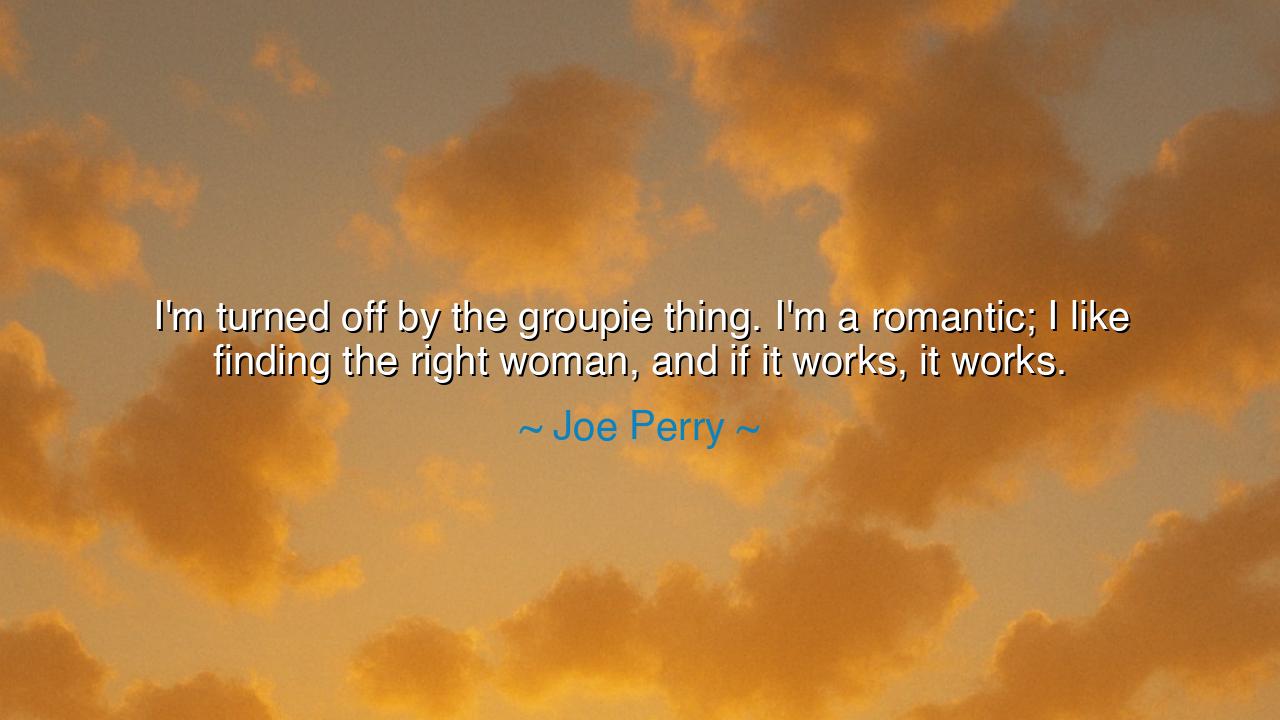
I'm turned off by the groupie thing. I'm a romantic; I like
I'm turned off by the groupie thing. I'm a romantic; I like finding the right woman, and if it works, it works.






In the words of Joe Perry, master of the guitar and voice of the restless stage, there is offered a confession that speaks not of indulgence but of longing: “I’m turned off by the groupie thing. I’m a romantic; I like finding the right woman, and if it works, it works.” Though his life was lived in the fire of rock and roll, his heart speaks here with the clarity of an ancient truth—that love is not found in crowds or conquests, but in the steady presence of the one who truly matters.
The ancients themselves warned against hollow passion. The poets of Greece sang of men who pursued countless lovers, yet found no rest in their hearts. They told of Paris, whose pursuit of beauty brought war to Troy, but also of Odysseus, who after years of wandering desired only to return to Penelope, his faithful queen. Perry’s words align with the wisdom of Odysseus: the truest victory is not in fleeting admiration, but in the enduring bond with the right companion.
The groupie life, with its chaos of faces and fleeting pleasures, may seem glamorous from the outside. Yet Perry sees through its illusion. It offers many moments, but no foundation; it feeds the ego, but starves the soul. To call oneself a romantic is to choose a harder path, for it demands patience, discernment, and vulnerability. Yet it is also the nobler path, for it seeks not applause, but connection; not quantity, but depth.
History gives us a mirror. Think of Marcus Aurelius, emperor of Rome, who could have indulged in endless luxuries, yet remained loyal to his wife Faustina. Though history remembers him as a philosopher-king, his devotion in love reflects the same principle: greatness lies not in endless possession, but in steadfastness. Like Perry, he might have had all the fleeting pleasures the world offered, yet he sought instead the grounding truth of a single union.
The deeper meaning of Perry’s words is that romantic love requires surrender to fate. He says, “If it works, it works,” acknowledging that love cannot be forced, nor manufactured, nor sustained by pretense. It must be real, organic, alive. This is the humility of the true romantic: to offer oneself honestly, and to accept that love thrives not in control but in mutual trust and timing.
The lesson is clear: turn away from the temptations of shallow pursuits. Do not measure your worth by how many admire you, nor by how many temporary passions you collect. Instead, seek the one who sees you not as a fleeting spectacle, but as a whole soul. For when such love is found, it holds more joy than the praises of a thousand strangers.
Therefore, O listener, follow the wisdom of Perry: cast aside the empty noise of the crowd and turn toward the quiet strength of true connection. Be patient in your search, and when love arrives, honor it with loyalty. For if it works, it works—and in that simple truth lies a treasure greater than fame, more enduring than desire, and brighter than any applause.






AAdministratorAdministrator
Welcome, honored guests. Please leave a comment, we will respond soon